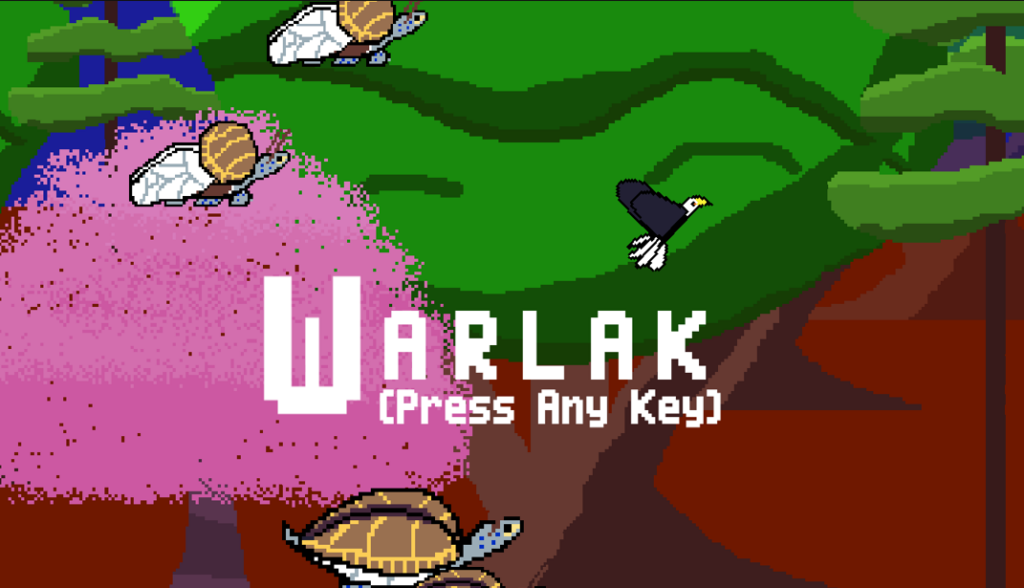For many college students, learning about evolution can feel like tackling the final boss in a video game—frustrating, complex, and sometimes seemingly impossible to conquer.
Though grounded in historical scientific theories, evolution goes well beyond fossils and dinosaurs. Theodore Dobzhansky famously stated that ‘Nothing in biology makes sense except in the light of evolution.’ A strong viewpoint, but one that encapsulates the magnitude to which evolutionary principles shape biology and applied fields like medicine, agriculture, and conservation. For example, evolutionary biology has paved the way for tracking how cancer cells mutate during chemotherapy, developing pest-resistant crops and understanding how species adjust to survive in changing environments. So how can something so fundamental be so difficult to learn?
One barrier to understanding evolution is the cultural and religious background of students, particularly when evolution challenges their core beliefs. A nationwide study on religiosity and evolution acceptance among students of color in the U.S. found that Black and Hispanic students, who tend to be more religious, are less accepting of evolution (Barnes et al., 2020). When evolution is presented solely as an unquestionable fact, without opportunities for active engagement, it can alienate students rather than foster critical thinking.
Not only that, the rise of digital technology presents new hurdles for teaching. Today’s students have grown up in a world filled with constant stimulation—smartphones, social media, and video games. In a traditional lecture setting where students passively listen to a professor talk for extended periods, the lack of interactivity can make it harder for students to focus and grasp evolutionary concepts. But what if learning evolution worked more like a game itself? Could video games, known for their immersive and interactive qualities, be the key to helping students understand one of the most fundamental concepts in biology?
A new study led by Jake Botello, a biologist and game designer at Auburn University (AU), suggests the answer might be yes. Jake and Matthew Wolak, an associate professor at AU, developed a game featuring a fictional species called The Warlak. Their goal was to explore how gaming can help college students grasp three important principles of evolution.
- Variation: While individuals may have the same trait, like body size, the value of that trait can vary, such as being small, medium, or large.
- Differential Fitness: In different environments, warlaks with specific traits have a better chance of survival and reproduction than those without. For example, when it comes to evading predators, smaller warlaks in grasslands have the advantage over larger ones, as they can hide in burrows or blend with tall grass.
- Heritability: Traits are passed down, meaning smaller warlaks typically have smaller children.
One student group (N = 306) played the full version of the game, which featured interactive elements such as a predator-prey dynamic and health points (HP) mechanics, similar to a traditional video game. In this version, players controlled Warlaks with various traits and observed how those traits affected survival and reproduction. A second group (N = 303) played a simplified version of the game with fewer interactive components. The third group (N = 293) served as a control and did not play any game. All students then completed a quiz consisting of multiple-choice and fill-in-the-blank questions, testing their ability to apply evolutionary concepts that they practiced while playing the game.
The results were promising! Students who played the simple or full game showed a significant improvement in their understanding of evolution compared to those who didn’t play. Also, lower-performing students saw an additional 8% increase in their final test scores if they were gamers. This finding suggests that the game-based approach not only helped enhance understanding of evolution but also proved particularly effective for lower-performing students.
Furthermore, all students expressed support for integrating video games into their curriculum, regardless of whether they had played the game before. This result highlights a need to rethink traditional teaching methods—not just in the context of evolution, but across disciplines.
The immersive and interactive aspects of video games offer educators a powerful tool to craft teaching experiences that captivate and engage students in the digital-age. Moving forward, research could refine game-based learning, test how long students remember key ideas, and explore its potential for other science topics. Carrying out these studies will be vital for developing adaptable teaching tools to help students learn traditionally-challenging materials.
For now, one thing is clear: when it comes to teaching evolution, pressing “Start” on interactive learning might just be a game-changer.

Link: http://aub.ie/warlak
Author Bio:
 Emelia Obodum Kusi is a Ph.D. candidate in the Adler Lab at UMass Amherst. Her research explores how various plant species and traits influence pathogen transmission rates and examines the impacts of climate and land use on bumblebee species rarity. Emelia is deeply committed to a collaborative approach in tackling the pressing issue of pollinator decline, recognizing its critical societal implications for global food security. When she’s not in the lab, Emelia enjoys serving her community and engaging in outreach to support underserved youths in STEM.
Emelia Obodum Kusi is a Ph.D. candidate in the Adler Lab at UMass Amherst. Her research explores how various plant species and traits influence pathogen transmission rates and examines the impacts of climate and land use on bumblebee species rarity. Emelia is deeply committed to a collaborative approach in tackling the pressing issue of pollinator decline, recognizing its critical societal implications for global food security. When she’s not in the lab, Emelia enjoys serving her community and engaging in outreach to support underserved youths in STEM.
References
Barnes, M. E., Supriya, K., Dunlop, H. M., Hendrix, T. M., Sinatra, G. M., & Brownell, S. E. (2020). Relationships between the religious backgrounds and evolution acceptance of Black and Hispanic biology students. CBE—Life Sciences Education, 19(4), ar59.
McFadden, J., Smith, D., Wechsler, S., & Wallander, S. (2019). Development, adoption, and management of drought-tolerant corn in the United States.
Ren, R., Zhou, X., & Feng, J. (2024). Wheat disease resistance: diagnosis, germplasm mining, and molecular breeding. In (Vol. 15, pp. 1500414): Frontiers Media SA.
Sabnis, A. J., & Bivona, T. G. (2019). Principles of resistance to targeted cancer therapy: lessons from basic and translational cancer biology. Trends in molecular medicine, 25(3), 185-197.

